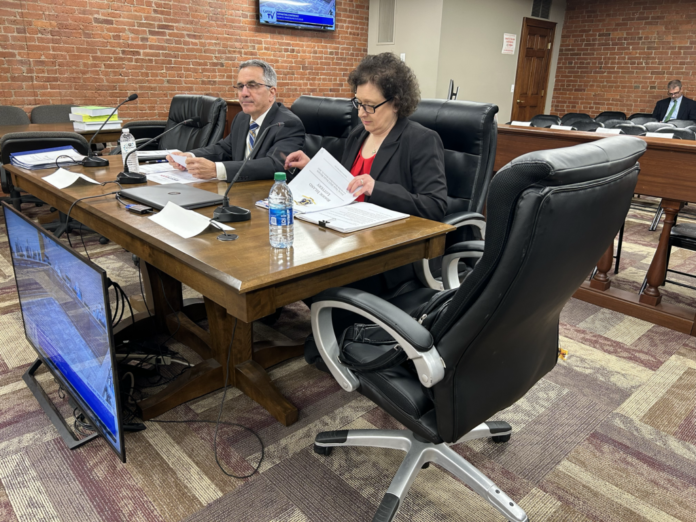
The launch of online sports betting in Massachusetts on March 10 is already leeching money from Rhode Island, and more losses lie ahead.
In the 49 days after mobile sports betting apps went live in the Commonwealth, Rhode Island saw the money from sports wagers (made in-person and online) cut by more than 10%, R.I. Lottery Director Mark Furcolo told state fiscal analysts Monday. Most of the decline came from wagers made at Bally’s Twin River in Lincoln, where sports betting revenue was down nearly 50%, according to Furcolo.
The state sportsbook handle – that is the amount of money wagered by bettors – totaled $401.8 million in fiscal 2022, and was initially expected to reach $417.5 million for fiscal 2023, according to the R.I. Lottery. But as Massachusetts steps up, reporting more than half a billion in online sports wagers placed the first three weeks, Rhode Island’s coffers may take a hit.
Just over half of the gross sportsbook handle goes to the state. International Game Technology pockets a third for running the only sportsbook mobile app while Bally’s gets the rest.
Furcolo warned of steeper losses to Rhode Island sports betting revenue when Massachusetts opens another retail sportsbook location in Raynham next month. Tiverton’s casino is expected to lose $807,000 as a result of that new location, Furcolo said at a hearing held during proceedings of the biannual Revenue and Caseload Estimating Conference at the State House.
The sudden and dramatic slashing of revenue from sports betting, which became legal at Rhode Island casinos in 2018 and online in 2019, comes as top lawmakers consider expanding online and mobile betting to table games and other forms of gambling. Senate President Dominick Ruggerio, a North Providence Democrat, and House Speaker K. Joseph Shekarchi, a Warwick Democrat, highlighted the need to “bolster Rhode Island’s competitive position” when announcing the introduction of an iGaming bill last week.
Allowing online gambling would inject another $210 million in tax revenue to state coffers for the next five years, according to a study by casino operator Bally’s Corp. which is championing the legislation.
That’s a significant increase, especially for a state like Rhode Island which relies on gambling activity for 8% of its tax revenue, said Michael DiBiase, executive director for the Rhode Island Expenditure Council.
However, DiBiase also pointed out that sportsbook handle only accounts for about 5% of the money the state makes off gambling, so expansion in Massachusetts may not leave Rhode Island in the hole, at least not immediately.
“I don’t see it as a major thing at this point in time.” DiBiase said of early losses to Rhode Island sports betting income. “But, going forward, it certainly could be.”
Furcolo declined to comment on the iGaming legislation.
Sportsbook revenue proved a bright spot for Rhode Island during the pandemic, increasing 76.3% in fiscal 2021 to $36.2 million as all other sources of gambling revenue declined, according to the lottery division’s fiscal 2021 report.
Earlier projections pegged sportsbook revenue at $42.2 million for the fiscal year that ends June 30. But those estimates were made before Massachusetts debuted in-person and online sports wagers this year.
Meanwhile, Bally’s Twin River has also seen video lottery profits falter in recent weeks. The Twin River casino was regularly posting double-digit percentage increases in weekly video lottery net income for much of the fiscal year, but since the week of March 4, has seen income decrease as much as 9% compared with the same week a year ago, according to information submitted to state budget analysts.
Furcolo said the casino saw some improvement in the latest week of video lottery income following the $60 million expansion unveiled on April 25.
The Rhode Island Lottery transferred $388.6 million to the state general fund in fiscal 2022. Initial estimates from November expected the transfer for fiscal 2023 to be $418.7 million, though that may change as budget analysts continue to hone their projections over the next few weeks.










